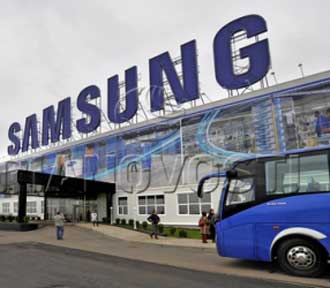 Depending on smartphones appears to have cost Samsung – the company is headed for its first annual earnings drop since 2011.
Depending on smartphones appears to have cost Samsung – the company is headed for its first annual earnings drop since 2011.
The company has revealed its July-September profit would be the lowest in more than three years and the short-term prospects for smartphones were uncertain.
Samsung is finding that its market share is falling thanks to the rise of Chinese rivals like Lenovo and Xiaomi.
Samsung said in a regulatory filing on Tuesday that operating profit for the third quarter likely fell 59.7 percent to $3.8 billion which was lower than the cocaine nose jobs of Wall Street predicted.
This would mark the South Korean giant’s weakest quarterly profit since the second quarter of 2011 and the fourth consecutive quarter of earnings declines on a yearly basis.
Samsung said that although “uncertainty” persisted in the mobile business, which accounted for nearly 70 percent of its 2013 operating profit, it “cautiously expects” higher shipments of new smartphones and strong seasonal demand for TV products.
Operating margin for the smartphone business fell substantially in the quarter due to higher marketing expenditure and sharply lower average selling prices, as the proportion of shipments for high-end devices fell and prices for older models dropped, Samsung said.
The belief amongst analysts is that Samsung will be back with stronger volumes once it revamped its product lineup. The outfit released its Galaxy Note 4 in recent months, featuring metal frames which will fix the accusation that its use of plastic had harmed sales.
Samsung also aims to launch more cost-competitive devices in the mid-to-low end segments. Analysts expect these products to appear by the end of October.
It is widely expected that Samsung would release a new mid-tier product late this month valued at between $300 and $400. The new device would use similar components to the flagship Galaxy S5 smartphone which is priced at about $500.
Samsung’s chip division is doing well. Samsung is the world’s top memory chipmaker and the returns from its memory business in the third quarter improved sequentially due to strong seasonal demand.





